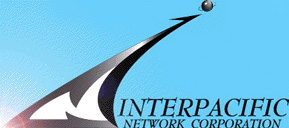|
Sales Force DevelopmentMany Americans think doing business in Japan is all about having a presence in Japan; however there are many tasks to accomplish prior to establishing a corporation in Japan.
For instance, you may need to work with a representative, an influential businessperson or a distributor that understands the market and also has business connections within the industry.
The Japanese marketplace is not apt to react quickly to pragmatic debate but is apt to react to what industry leaders say about your company, product, and or solutions. Often leaders in the industry are key persons in large companies or trend leaders that are known for specialized competencies and they assess the effectiveness of new comers from the USA independently.
Once you try your best to win a champion within your industry or trend leader's circle and confirm your value proposition for the industry, you may be ready to establish your business in Japan.
You should work with a professional that knows the industry and how to find the best possible employers including the CEO for your Japan operation. You will then work closely with the head of the Japan operation and create a sales force for your products or services in Japan.

|
Core CompetencyOften American companies do not have the time or resources to properly
align with Japanese partners. Japanese companies set their own pace.
American management often think Japanese partners are too slow or due to poor communications, they may think their Japanese "partners" are stalling.
Before construing Japanese intentions incorrectly, it is important to have
someone who can properly explain the Japanese way to ensure everyone is on
the same page and moving forward as a team.
Often deals fall apart in Japan because American corporations mishandled
intercultural communications when Japanese companies seem unwilling to
change their internal processes or how they do business within this unique market.
Which is why it is so important to work with an experienced Japanese
negotiator to avoid such misunderstandings, miscalculations, and missteps.
US companies may not be ready for Japanese different pace within their market as described above, especially when the companies are trying to do things that are not
100% true to their core competency or they are attempting to execute on projects without proper funding. So, if the company does not have enough budget, time, resources or well
established competency to develop localized products or overcome the
challeges to do business at the Japanese speed, the Japanese market may not
be the market they want to take inroads into.

|
|
Japanese Specification or Special Requirements As is the case in the states, there will be unique Japanese requirements for products or services that have a lot to do with Japanese government regulations, culture, conventional basis or behaviors.
Our specialist will help adopt your product or service to understand the rationales of each requirement.
Often, different marketing approaches are required. US marketing strategies might not work in Japan and your partner may propose a strategy that seems “wrong”, but the Japanese culture is so dramatically different what seems “wrong” in the states may be a wonderfully successful within Japan.
Understanding the underlying cultural differences are often difficult, you will need someone who can explain why the Japanese react differently to such marketing approaches and be able to understand why a certain strategy might be the right marketing strategy in Japan and this is what we do.

|
Initial Order Traditionally in Japan, as you near your initial P.O., order volume, lot size, and schedules will be continuously “discussed”. Quality control inspection and product accreditation will follow.
Eventually you will find yourself renegotiating the terms and new product designs, roadmap with your suppliers and manufacturing divisions.
As time passes, stakes grow increasingly higher and when details of the deal truly become apparent;
your partner, client will begin to ask for more information, including a more detailed schedule, cost reduction schedule, next generation products, etc mostly because Japanese companies are focused on the long-term.
Understanding why Japanese partners are asking the questions they ask is important to ensure each and every question is answered in just the right way, that helps nurture your relationship and positions everyone to succeed in the future.

|
Cross Cultural Communication Doing business between the US and Japan requires heavy duty cross cultural communication skills and experiences. Interpacific Network Corp has those skills and experiences.
Although, the US and Japan are culturally less distinct than in the past from each other, there are many “things” that are different, especially when doing business, in many cases, it gets very difficult to communicate with one another because Japanese companies are managed differently than in the US.
Having an experienced account manager that understand very subtle Japanese business expressions and manners to American ways of business, eliminates misunderstandings, misconstrued intentions; resulting in better control over your Japanese channel.

|
Understanding Organization Before taking inroads into Japan, you must study and understand your target or potential customer's organization.
This may seem similar to doing business development in the US, however as Japanese organization are so different than companies in the US, you will need to deeply understand not only the Japanese way of doing business but also such unique history of each target or potential customer.
Is the company’s structure a strong top-down structure or a more typical Japanese company, making decisions collectively, in a "ringi" fashon, by internal memo?
Do the legal, accounting, credit and risk departments have more decision making power than production, operation, sales and marketing departments?
Getting answers to many questions including the above, you will learn who and how your customers and partners make actual decisions.
Then, one must understand the political, academic clique or group of people in the organization that are the true decision makers, and what their objectives are, who are their rivals or enemies in the organization or in the industry. Finally you will learn what they really want and you can easily establish great relationship with the key executives and find a common ground or point of compromise to complete your deal. Also, with such a well established relationship, you will be better positioned to do cross development and realize synergies with your partner much faster and efficiently than ever before.

|
|
Value and Price Strategic marketing pricing proposals should be submitted after one performs a comprehensive presentations of the value of your products or services, and ultimately, your offer in order for your partners and or your customers to understand your business and the value you provide.
It is important to understand your target market and how end-user will bear the price of your product.
When the products or services can be resold with profits, and the end user price stays in an acceptable range for the added value you provide, such value/cost is appropriately passed onto the end users. However, if the products or services intended for your customers are for them to create consumer products, programs or services for their subscribers or customer base, a different pricing structure may be necessary.
Unless your customer or partner truly understands the value you provide and believes they can explain and then pass that cost onto their customer, you will be unable to sell your product for the appropriate price, perhaps leaving money on the table.
To accomplish this goal, an experienced sales and marketing professional is needed to help your partner understand and position your product or service in the future. This sales person must have enough tenacity and ability to establish a personal trust with your proposed partner to negotiate successfully, with flexibly in Japan.
|
Proposal Interpacific Network Corp will take a close look at each case and conduct a “quick” yet detailed research project to learn understand your company's possibilities in Japan.
In phase one of our engagement, we will discuss your company's products and services with potential business partners, industry experts and professionals; while assessing the feasibility. We will then submit our proposal for your review.
We will patiently discuss the best solution for your company that fits your priorities, overall strategy, needs, location and budget. To learn, please contact us at: info@interpacificnet.com.

|









